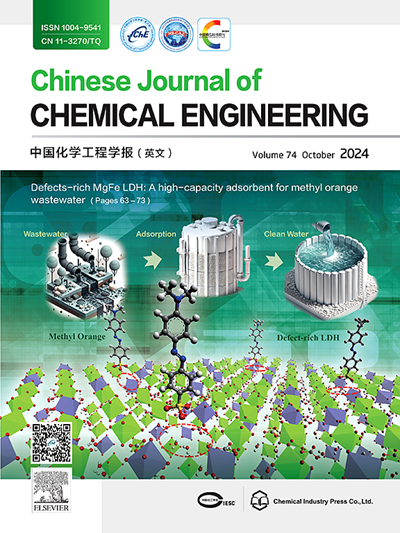Intelligent chemical synthesis based on microchemical engineering technology
IF 3.7
3区 工程技术
Q2 ENGINEERING, CHEMICAL
引用次数: 0
Abstract
Chemical synthesis is essential in industries such as petrochemicals, fine chemicals, and pharmaceuticals, driving economic and social development. The increasing demand for new molecules and materials calls for novel chemical reactions; however, manual experimental screening is time-consuming. Artificial intelligence (AI) offers a promising solution by leveraging large-scale experimental data to model chemical reactions, although challenges such as the lack of standardization and predictability in chemical synthesis hinder AI applications. Additionally, the multi-scale nature of chemical reactions, along with complex multiphase processes, further complicates the task. Recent advances in microchemical systems, particularly continuous flow methods using microreactors, provide precise control over reaction conditions, enhancing reproducibility and enabling high-throughput experimentation. These systems minimize transport-related inconsistencies and facilitate scalable industrial applications. This review systematically explores recent developments in intelligent synthesis based on microchemical systems, focusing on reaction system design, synthesis robots, closed-loop optimization, and high-throughput experimentation, while identifying key areas for future research.
基于微化学工程技术的智能化学合成
化学合成是石油化工、精细化工、医药等行业的重要组成部分,是经济社会发展的重要动力。对新分子和新材料日益增长的需求要求新的化学反应;然而,人工实验筛选是费时的。人工智能(AI)通过利用大规模实验数据来模拟化学反应,提供了一个有前途的解决方案,尽管化学合成中缺乏标准化和可预测性等挑战阻碍了人工智能的应用。此外,化学反应的多尺度性质,以及复杂的多相过程,进一步使任务复杂化。微化学系统的最新进展,特别是使用微反应器的连续流动方法,提供了对反应条件的精确控制,提高了再现性并实现了高通量实验。这些系统最大限度地减少了与运输相关的不一致性,并促进了可扩展的工业应用。本文系统探讨了基于微化学系统的智能合成的最新进展,重点关注反应系统设计、合成机器人、闭环优化和高通量实验,同时确定了未来研究的重点领域。
本文章由计算机程序翻译,如有差异,请以英文原文为准。
求助全文
约1分钟内获得全文
求助全文
来源期刊

Chinese Journal of Chemical Engineering
工程技术-工程:化工
CiteScore
6.60
自引率
5.30%
发文量
4309
审稿时长
31 days
期刊介绍:
The Chinese Journal of Chemical Engineering (Monthly, started in 1982) is the official journal of the Chemical Industry and Engineering Society of China and published by the Chemical Industry Press Co. Ltd. The aim of the journal is to develop the international exchange of scientific and technical information in the field of chemical engineering. It publishes original research papers that cover the major advancements and achievements in chemical engineering in China as well as some articles from overseas contributors.
The topics of journal include chemical engineering, chemical technology, biochemical engineering, energy and environmental engineering and other relevant fields. Papers are published on the basis of their relevance to theoretical research, practical application or potential uses in the industry as Research Papers, Communications, Reviews and Perspectives. Prominent domestic and overseas chemical experts and scholars have been invited to form an International Advisory Board and the Editorial Committee. It enjoys recognition among Chinese academia and industry as a reliable source of information of what is going on in chemical engineering research, both domestic and abroad.
 求助内容:
求助内容: 应助结果提醒方式:
应助结果提醒方式:


